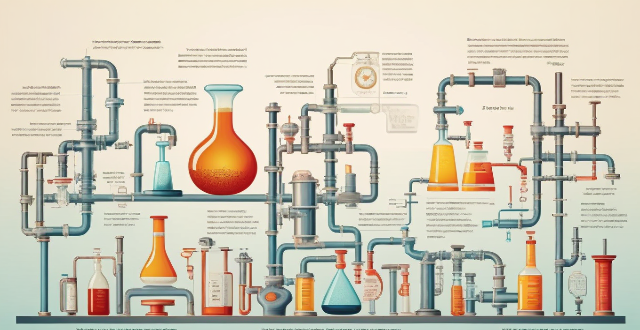Industries manage hazardous chemicals responsibly through identification, safe handling, transportation, disposal, emergency response planning, employee training, regulatory compliance, and collaboration with stakeholders.

Role of Industries in Managing Hazardous Chemicals Responsibly
Industries play a crucial role in managing hazardous chemicals responsibly. They are responsible for producing, handling, storing, transporting, and disposing of these chemicals. The following are some of the ways industries can manage hazardous chemicals responsibly:
1. Identification and Classification
The first step in managing hazardous chemicals is to identify and classify them. This involves determining the chemical's properties, such as its toxicity, flammability, and reactivity. Once identified, the chemicals can be classified based on their hazard level, which will determine how they should be handled, stored, and disposed of.
2. Safe Handling and Storage
Industries must ensure that hazardous chemicals are handled and stored safely. This includes using appropriate personal protective equipment (PPE), such as gloves, goggles, and respirators, when working with these chemicals. Additionally, proper storage facilities should be provided to prevent leaks, spills, or other accidents that could harm workers or the environment.
3. Transportation
When transporting hazardous chemicals, industries must follow strict regulations to ensure the safety of workers and the public. This includes using appropriate packaging materials, labeling the containers accurately, and ensuring that the transportation vehicles are suitable for carrying hazardous materials.
4. Disposal
Proper disposal of hazardous chemicals is essential to prevent environmental pollution and protect public health. Industries must follow regulations for disposing of hazardous waste, which may include incineration, landfill disposal, or recycling. It is crucial to ensure that the disposal methods used do not harm the environment or human health.
5. Emergency Response Plan
Industries must have an emergency response plan in place to deal with accidents involving hazardous chemicals. This plan should include procedures for evacuating workers, containing spills or leaks, and minimizing damage to the environment. Regular training and drills should be conducted to ensure that workers are prepared to handle emergencies effectively.
6. Employee Training
Employees who work with hazardous chemicals must receive adequate training on how to handle these substances safely. This includes understanding the risks associated with each chemical, knowing how to use PPE correctly, and recognizing signs of exposure or poisoning. Regular refresher courses should be provided to ensure that employees remain up-to-date with the latest safety practices.
7. Regulatory Compliance
Industries must comply with all applicable laws and regulations related to hazardous chemicals. This includes obtaining necessary permits, conducting regular inspections, and maintaining accurate records of all hazardous chemicals used, stored, and disposed of. Non-compliance can result in fines, legal action, and damage to the company's reputation.
8. Collaboration with Stakeholders
Industries should collaborate with stakeholders, such as government agencies, non-governmental organizations (NGOs), and community groups, to promote responsible management of hazardous chemicals. This can involve sharing best practices, participating in joint research projects, and supporting initiatives aimed at reducing the impact of hazardous chemicals on people and the environment.
In conclusion, industries play a vital role in managing hazardous chemicals responsibly by identifying and classifying them, handling and storing them safely, transporting them according to regulations, disposing of them properly, having an emergency response plan, providing employee training, complying with regulations, and collaborating with stakeholders. By doing so, they can help protect workers, the public, and the environment from the harmful effects of hazardous chemicals.